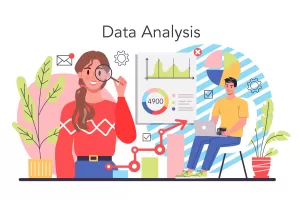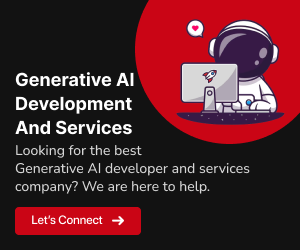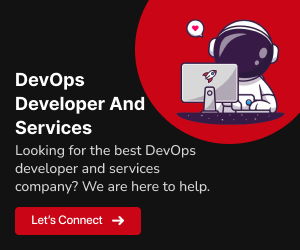In the dynamic landscape of the United States, startups have become the heartbeat of innovation and entrepreneurship. These emerging ventures, often characterized by their fresh ideas, agility, and ambition, play a pivotal role in shaping the nation’s economy. From the bustling tech hubs of Silicon Valley to the vibrant entrepreneurial scenes in cities like New York and Austin, American startups are at the forefront of groundbreaking technologies, novel business models, and transformative solutions.Explore how US startups harness Generative AI to unlock business potential. Innovative strategies and applications revealed.
In an era where technology continues to reshape industries and redefine the way we do business, startups in the United States find themselves at the intersection of innovation and opportunity. These agile and dynamic enterprises are known for their capacity to disrupt markets and challenge the status quo. However, navigating the complex landscape of entrepreneurship is not without its challenges. This is where Generative Artificial Intelligence (AI) steps in as a powerful ally for US startups, offering a key to unlocking their full business potential.
The Startup Ecosystem in the United States
The United States has long been a hotbed for entrepreneurship. With a thriving ecosystem that includes renowned tech hubs like Silicon Valley, Boston, and Austin, it’s a place where ideas flourish and ambitious individuals come together to bring those ideas to life. US startups are characterized by their innovation, risk-taking spirit, and ambition to make a mark in the world of business.
The Power of Generative AI
Generative AI, a branch of artificial intelligence, is a game-changer in the realm of innovation. At its core, generative AI is about machines learning from vast datasets and using that knowledge to create content, solutions, or ideas. It’s a technology that can mimic human creativity, making it a valuable tool for startups looking to innovate and stay competitive.
Here’s how generative AI is transforming the way US startups operate:
Idea Generation:
One of the most significant challenges for startups is coming up with innovative ideas that can set them apart from competitors. Generative AI can assist by analyzing market trends, customer preferences, and industry data to generate novel concepts and product ideas. It’s like having a virtual brainstorming partner that never runs out of creative juices.In the highly competitive landscape of startups, generating innovative ideas is essential for success. Generative AI not only aids in idea generation but also does so with data-driven precision. By analyzing vast datasets encompassing market trends, consumer preferences, and industry insights, Generative AI can uncover untapped opportunities and suggest novel concepts that align with market demands. This virtual brainstorming partner never tires, continuously providing startups with fresh ideas that can set them apart from competitors. It’s a valuable tool for staying ahead of market shifts and evolving customer needs.
Content Creation:
In today’s digital age, maintaining a robust online presence is vital for startups. Quality content plays a pivotal role in engaging and retaining an online audience. Generative AI streamlines content creation by automating the generation of website content, social media posts, marketing materials, and more. This automation ensures that startups can maintain a consistent and engaging online presence without the need for a large content team. The result is not just quantity but also quality, as AI can optimize content for SEO and user engagement.
Personalized Customer Experiences:
Meeting customer expectations for personalized experiences is a key differentiator for startups. Generative AI excels in this area by analyzing customer data, behaviors, and preferences to craft tailored interactions. It can generate personalized product recommendations, customize email marketing content, and provide intelligent chatbot responses. This level of personalization enhances the customer experience, fosters brand loyalty, and ultimately drives sales. Startups can build deeper connections with their customers by leveraging the power of AI-driven personalization.
Market Research:
Understanding the dynamics of the market landscape is critical for startups aiming to make informed decisions. Generative AI is adept at processing vast volumes of market data, extracting actionable insights, and identifying emerging trends. By sifting through this wealth of information, it empowers startups to gain a comprehensive view of their industry, identify opportunities, and anticipate shifts in customer preferences. Armed with data-driven market research, startups can fine-tune their product offerings and strategies for optimal growth and competitiveness.
Efficiency and Cost Savings:
Startups often operate on tight budgets and with limited resources. Generative AI comes to the rescue by automating repetitive and resource-intensive tasks. Whether it’s data entry, report generation, or data analysis, AI-driven automation streamlines operations and reduces overhead costs. This efficiency allows startups to allocate their resources more strategically, directing them toward core business activities, innovation, and growth initiatives. It’s a path to maximizing productivity and optimizing resource utilization, even in resource-constrained environments.
Challenges and Ethical Considerations

While the potential benefits of generative AI for US startups are vast, it’s essential to recognize the challenges and ethical considerations that come with its adoption. Privacy, bias in algorithms, and the need for human oversight are all critical aspects that must be addressed to ensure responsible and ethical use of this technology.
The adoption of Generative AI by US startups:
Data Privacy and Security:
Startups handling sensitive customer data must prioritize data privacy and security. Generative AI relies on extensive datasets, and ensuring that these data sources are ethically obtained and protected from breaches is paramount. Startups need to comply with data protection regulations such as GDPR (General Data Protection Regulation) and HIPAA (Health Insurance Portability and Accountability Act) if applicable to their operations.Bias in Algorithms:
Generative AI algorithms can inadvertently perpetuate biases present in the data they are trained on. This can result in biased content or decision-making processes. Startups must implement rigorous testing and validation procedures to identify and mitigate bias in AI-generated outputs. Ethical considerations include addressing bias related to race, gender, ethnicity, and other sensitive attributes.Transparency and Accountability:
The opacity of AI algorithms can be a concern. Startups need to ensure transparency by documenting the AI’s decision-making processes and making them understandable to humans. This includes providing explanations for why AI-generated content or recommendations were produced. Establishing accountability within the organization for AI-generated outputs is also essential.Human Oversight and Intervention:
Despite AI’s capabilities, human oversight remains crucial. Startups should establish clear guidelines for when and how human intervention is required. This includes monitoring AI-generated content and having mechanisms in place for humans to review and approve outputs, especially in critical areas like customer communication and legal documentation.Regulatory Compliance:
Staying compliant with evolving AI regulations is challenging but necessary. Startups must monitor and adapt to changes in AI-related laws and regulations. This includes compliance with fairness, transparency, and accountability requirements imposed by governments and industry-specific bodies.Education and Awareness:
Ensuring that all stakeholders, from employees to customers, understand the capabilities and limitations of Generative AI is essential. Startups should invest in education and awareness programs to promote responsible AI use and foster a culture of ethical AI adoption.
By proactively addressing these challenges and ethical considerations, startups can harness the power of Generative AI while upholding their commitment to ethical, responsible, and socially beneficial AI adoption. This approach not only mitigates risks but also enhances trust among customers, investors, and the broader community, positioning startups for long-term success in the ethical application of AI technologies.
Also read : Enhancing User Engagement through Generative AI
Ways in which startups can harness Generative AI to unlock their business potential
Product Development and Design:
Startups can use Generative AI to assist in product development and design. AI can generate design prototypes, product variations, and even suggest improvements based on user feedback and market trends. This accelerates the product development cycle and helps in creating innovative solutions.Content Creation:
Content generation can be time-consuming. Generative AI can automate content creation, including writing articles, product descriptions, and marketing materials. This allows startups to maintain an active online presence without the need for a large content team.Personalized User Experiences:
Generative AI can analyze user data and behavior to create personalized experiences. Startups can use this for targeted marketing, product recommendations, and customized user interfaces, increasing user engagement and satisfaction.Customer Support and Chatbots:
AI-powered chatbots and virtual assistants can handle routine customer queries, providing immediate responses and freeing up human resources for more complex tasks. This improves customer service efficiency and availability.Data Analysis and Insights:
Generative AI can process and analyze large datasets to extract valuable insights. Startups can use this information for market research, customer behavior analysis, and decision-making, gaining a competitive edge in their industry.Fraud Detection and Security:
AI can enhance cybersecurity by identifying potential threats and anomalies in real-time. Startups can protect their sensitive data and customer information, maintaining trust and credibility.Predictive Analytics:
Generative AI can predict future trends and customer preferences based on historical data. Startups can use these predictions to make informed decisions about product development, marketing strategies, and resource allocation.Language Translation:
For startups dealing with international markets, Generative AI-powered translation tools can break language barriers, making it easier to communicate with global customers, partners, and investors.
US companies that are using generative AI:
OpenAI:
OpenAI is a non-profit research company that develops and studies generative AI. They are known for their development of GPT-3, one of the most powerful language models in the world. OpenAI’s generative AI is used in a variety of applications, including chatbots, text generation, and image synthesis.Google:
Google, a tech giant, is heavily investing in generative AI. They are utilizing generative AI to enhance their products and services. For instance, Google Translate, Google Photos, and Google Search have all benefited from these investments. Moreover, they are harnessing generative AI to create new products, including Google’s cutting-edge AI-powered language model, LaMDA.Microsoft:
Microsoft, another tech giant, is also committed to generative AI. They are integrating this technology to enhance their existing offerings like Microsoft Azure, Microsoft Office, and Microsoft Bing. Furthermore, they are channeling generative AI into the development of innovative products, exemplified by Microsoft’s new AI-powered chatbot, Xiaoice.Amazon:
Amazon, primarily an e-commerce company, is leveraging generative AI to refine their product recommendations, product descriptions, and search results. In addition, they are actively employing generative AI in the creation of novel products and services, like virtual assistant, Alexa.Adobe:
Adobe, a prominent software company, is taking advantage of generative AI to elevate their creative suite, which includes Photoshop, Illustrator, and InDesign. Furthermore, they are harnessing generative AI to forge ahead with new offerings, such as Adobe’s state-of-the-art AI-powered image editing tool, Content-Aware Fill.GeekyAnts:
With GeekyAnts as a partner, US startups gain access to a wealth of experience in AI development, ensuring that their adoption of Generative AI aligns with best practices, ethical considerations, and regulatory compliance. GeekyAnts empowers startups to leverage AI not just as a technology but as a catalyst for growth and transformation.
The Future of US Startups with Generative AI
In conclusion, “Unlocking Business Potential: Harnessing Generative AI for US Startups” represents not just a concept but a tangible pathway to success for startups in the United States. By embracing generative AI responsibly and strategically, these emerging enterprises can tap into a wellspring of creativity, efficiency, and competitiveness, ultimately realizing their full potential and contributing to the ever-evolving narrative of American entrepreneurship. The future is bright for US startups, and it’s powered by the limitless possibilities of generative AI.
The future indeed holds immense promise for US startups as they embrace Generative AI. This technology represents a powerful ally in their journey towards innovation, efficiency, and competitiveness. As we conclude, let’s emphasize how a pioneering company like GeekyAnts can be instrumental in helping US startups unlock the full potential of Generative AI.

























